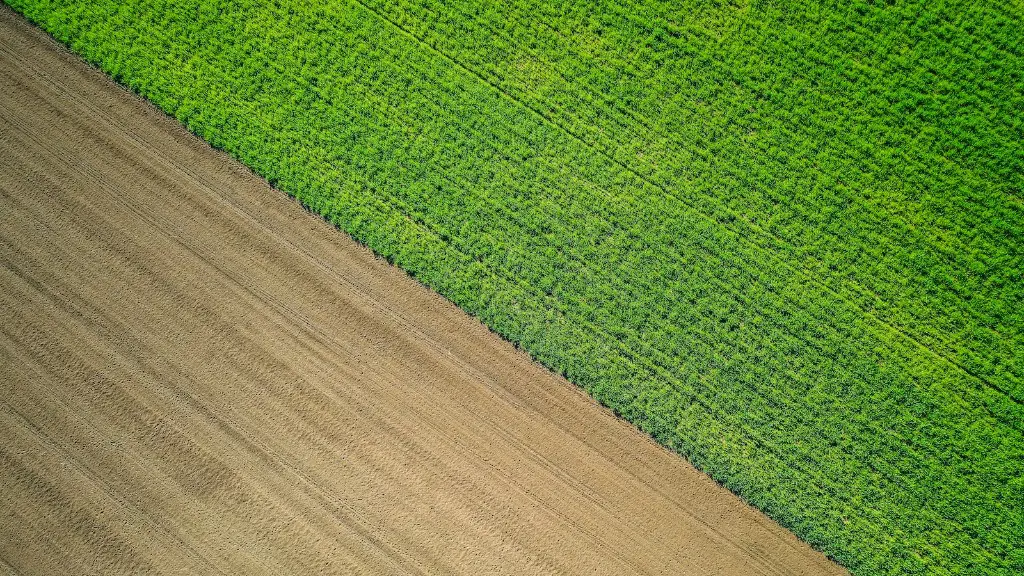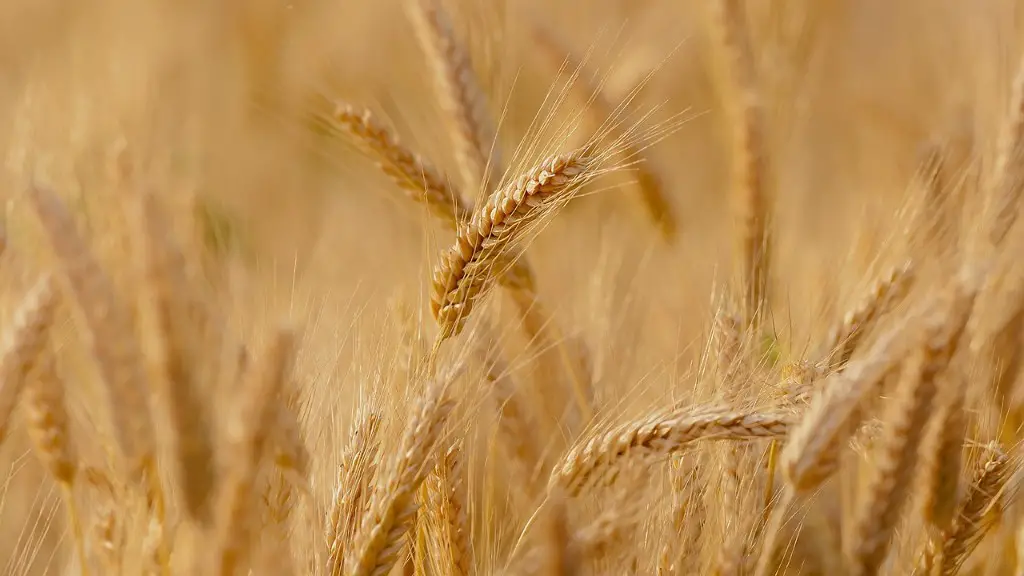Agriculture is one of the oldest industries in the world and has come a long way over the centuries. It is defined as the cultivation of land and production of crops, animals, and other related products. Generally, it refers to the science and practice of developing, managing, and preserving natural resources in an efficient and sustainable manner. In short, it is the practice of purposely manipulating the environment to create renewable resources for human beings. Agriculture is paramount to the existence of humanity, as it provides basic necessities such as food, clothing, and shelter, as well as renewable energy sources such as cotton and biofuels. Additionally, it serves as a means of economic development, especially in rural areas.
Land and Livestock
Agricultural activities are mainly focused around land management and animal husbandry, with the aim of producing crops or raising livestock for a variety of purposes. This includes the production of essential food and nutrition, such as fruits, vegetables, grains, and livestock products, such as dairy, eggs, and meat. Land management includes land acquisition, preparation, and modification, as well as caring for the soil to ensure adequate moisture, fertility, and nutrient levels. Animal husbandry is the study, management, and production of livestock, including selection, breeding and care. Livestock can provide a variety of food and nutrition products, including milk, eggs, meat and wool, as well as acting as draft animals in some parts of the world.
Agricultural Practices
Aside from land and livestock, there are also a variety of other agricultural practices. These include crop rotation and natural pest control techniques such as intercropping, cover crops, and companion planting. Additionally, agricultural engineering techniques, such as genetic and organic engineering, are also used to develop and produce advanced or higher yielding crops. Many of these techniques depend on the environment, as certain climates will require different strategies for best yields. Similarly, ancient and modern irrigation techniques, such as drip and center-pivot irrigation, are used to ensure that crops are provided with the necessary water and nutrition levels.
Agricultural Culture
Culturally, agriculture is of immense importance to many communities. It is a traditional practice and has been handed down through generations, providing both practical and spiritual benefits to communities. For example, sacred lands and crops, such as corn in the Americas, have been a symbol of spirituality, identity and connection to the land among many cultures. Additionally, agricultural festivals and rites of passage celebrate the end of the harvest season, as a way of not only expressing gratitude for abundant resources, but also as a period of rest and celebration for hardworking individuals involved in the production process.
Impact of Agriculture
Agriculture has a huge environmental impact, as it is responsible for land-use change, deforestation and biodiversity loss. Additionally, it also has an effect on air and water pollution, as it utilizes a range of fertilizers and pesticides, which can leach into water sources and contaminate them. Furthermore, intensive farming practices are known to contribute to soil erosion and desertification, leading to a decrease in the fertility of the land. As such, it is important to be aware of these impacts and strive to produce crops and manage livestock in sustainable ways, such as through organic or regenerative agriculture.
New Technologies in Agriculture
New technologies in agriculture are driving changes in the way that crops are cultivated and livestock are bred, managed and maintained. These technologies include genetics and data science, used in genetic engineering and precision farming, as well as advanced robotics and artificial intelligence (AI) utilized in robotic milking and automated weeding. Additionally, the application of drones, satellites and the Internet of Things is allowing for improved tracking, analysis and management of crops, livestock and resources, leading to higher productivity and efficiency.
Organic and Sustainable Agriculture
The demand for organic and sustainable agricultural products is rapidly increasing, as more and more people are becoming concerned about the environment and the damaging effects of intensive farming practices. Organic and sustainable farming methods focus on avoiding the use of chemical fertilizers and pesticides, as well as encouraging the use of natural nutrient cycles and natural pest control techniques. Additionally, there is also a focus on conserving soil fertility and water resources through such techniques as crop rotation and cover cropping, as well as using renewable energy sources to power production.
Regenerative Agriculture
A relatively new concept in agricultural production is regenerative agriculture. This involves utilizing improved ecological management strategies to preserve and enhance soil fertility, water availability and biodiversity on farms. In addition, it also seeks to create positive environmental change, reducing greenhouse gas emissions and improving the quality of air, water and soil on the farm. These strategies are used in conjunction with traditional agricultural practices, such as crop rotation and conservation tillage, in order to ensure that farms remain productive and sustainable in the long-term.
Agricultural economics
Agricultural economics is the study of the economic factors influencing the production, consumption and distribution of agricultural products. Agricultural economics is an interdisciplinary field, as it looks at the economic, social and political factors affecting agriculture, as well as the factors influencing production and consumption of agricultural products. This includes topics such as food security, food price volatility, farm subsidies and the economic impact of climate change. Additionally, agricultural economics also examines the policy and regulatory frameworks, as well as the role of technology and innovation, in driving agricultural productivity and sustainability.
Sustainable Food Systems
Sustainable food systems are becoming increasingly important as a means of tackling global issues such as climate change, biodiversity loss and food insecurity. Sustainable food systems seek to create a holistic approach to managing resources for food production, in order to ensure that the environment is not degraded. This includes such strategies as reducing food waste, utilizing diverse food production techniques, such as agroforestry and urban farming, and promoting more plant-based diets. Additionally, it also involves creating sustainable value chains within the food industry, so that resources are used efficiently and waste is minimized.


